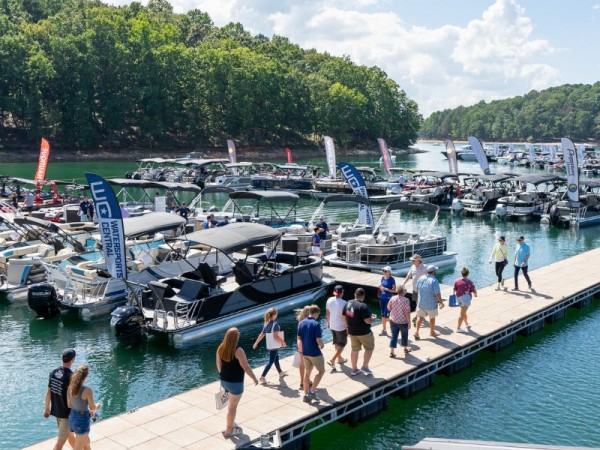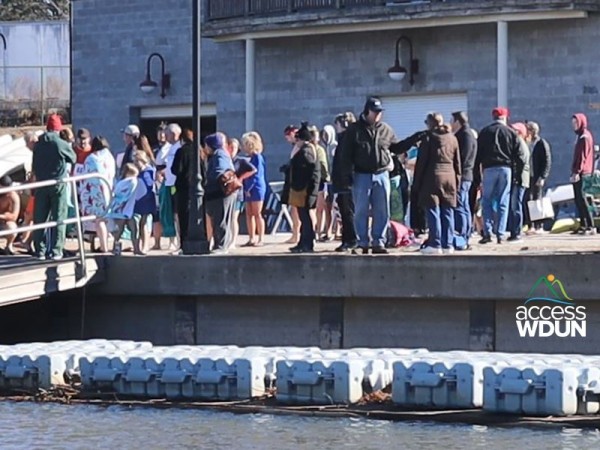SOCIAL CIRCLE — Since Independence Day falls on a Saturday this year, the Georgia Department of Natural Resources Law Enforcement Division is expecting waterways across the state to be busier than usual as boaters and swimmers take to the lakes and rivers for picnics, recreation and fireworks.
Rangers will be working throughout the weekend, prepared to enforce the boating laws, educate about safety practices, and do their best to see that everyone goes home safely. All they ask is that boaters remember and follow what they call “The Big 3.”
What are “The Big 3?”
1. Wear your life jacket. The best way to increase your chances of surviving a boating incident is to wear it. The law says that there must be a U.S. Coast Guard-approved life jacket on board for each person in the boat. Children under 13 are required by law to have it on if the boat is moving, whether drifting or under power. The Rangers recommend that everyone wear them, all the time.
“If you are ejected in a boating incident, even if your life jacket is on the floor next to you, grabbing it on the way out will be impossible,” said Lt. Col. Jeff Weaver, assistant director of the Law Enforcement Division. “That may sound funny but the choice to wear it or not can determine whether you live or die. It is that serious.”
2. Obey and Follow Navigation (and other) Rules and Laws. Many boating incidents are caused by the operator not knowing or following the “rules of the road” on the waterways.
DNR Law Enforcement has received a number of complaints from citizens across the state regarding boaters and personal watercraft (PWC) operators not following the 100-foot law. It states that you cannot operate a boat or PWC at greater than idle speed within 100 feet of another boat, a dock, a bridge, a person in the water, the shoreline, a marina or other public use areas. Breaking this law is extremely dangerous and Rangers will be on high alert for violators of the 100-foot law.
“Jumping the wakes or cutting in front of boats, and buzzing docks and swimming areas will not be tolerated,” said Weaver. “We’ve had a few complaints about boats but the majority of the 100-foot law breakers are riding PWCs.”
3. Don’t drink and boat. Just over a month into boating season and Rangers have already made nearly 100 Boating Under the Influence (BUI) arrests this year (97). There were 182 in all of 2014.
The blood alcohol content for BUI is 0.08, mirroring Georgia's DUI law. Just like on the roadways, if you are caught over the limit, you will be arrested.
“We are not out there trying to be the officer who ruins your fun. But, if we don’t get drunken boaters off the water then we aren’t putting public safety first and upholding the law as we are sworn to do,” said Weaver.
Boating sober or having a non-drinking “Designated Skipper” should also be a priority. Last weekend, DNR Law Enforcement conducted “Operation Dry Water” on all state waterways, an effort to curb boating under the influence of alcohol or drugs. Seven BUI arrests were made during the operation.
So far this year in Georgia, 43 boating incidents have resulted in 20 injuries and nine boating incident-related fatalities. Additionally, 20 people have drowned on public waters.
__________________________________________________________________________________________________
Following are some of the many recommended safety rules for boat and personal watercraft (PWC) operators:
- Designate an operator - Do not drink and operate a boat. Georgia law states that a blood alcohol content level of .08 or greater for boaters is legally intoxicated – the same content as for driving a car.
- Take a boating safety course – it’s mandatory for anyone 17 years old or younger.
- Wear a life jacket – Children under 13 are required by law to wear a life jacket while onboard a moving vessel, but it’s recommended for everyone to wear a life jacket.
- Don’t overload your boat with people or equipment - Check the capacity plate for the maximum weight or the maximum number of people the boat can safely carry.
- Use navigation lights at all times when on the water at night and during low light conditions - Check lights before it gets dark.
- Watch your speed - The 100-foot law applies to ALL size vessels and prohibits operation at speeds greater than idle speed within 100 feet of any vessel, unless overtaking or meeting another vessel in compliance with the rules of the road. Also, all vessels must be at idle speed when they pass within 100 feet of a dock, bridge, pier, piling, wharf, person in the water, shoreline adjacent to a residence, public park, public beach or swimming area, marina, restaurant or other public use area.
PWC operators also should be aware of these additional safety rules:
- Do not jump the wake of another boat.
- Pay attention to your surroundings and make sure you stay well clear of other vessels.
- Know Georgia’s age requirements for PWC operation – under 12 may not operate a PWC; 12-15 must take the education course or have a competent adult on board, age 18 or older, not under the influence of alcohol or drugs, who is carrying proper identification.
- Make sure everyone who operates your PWC is aware of boating laws and how to safely operate a PWC. As the owner, you can be held responsible.
For more information, visit www.gadnrle.org and click the boating tab.

















